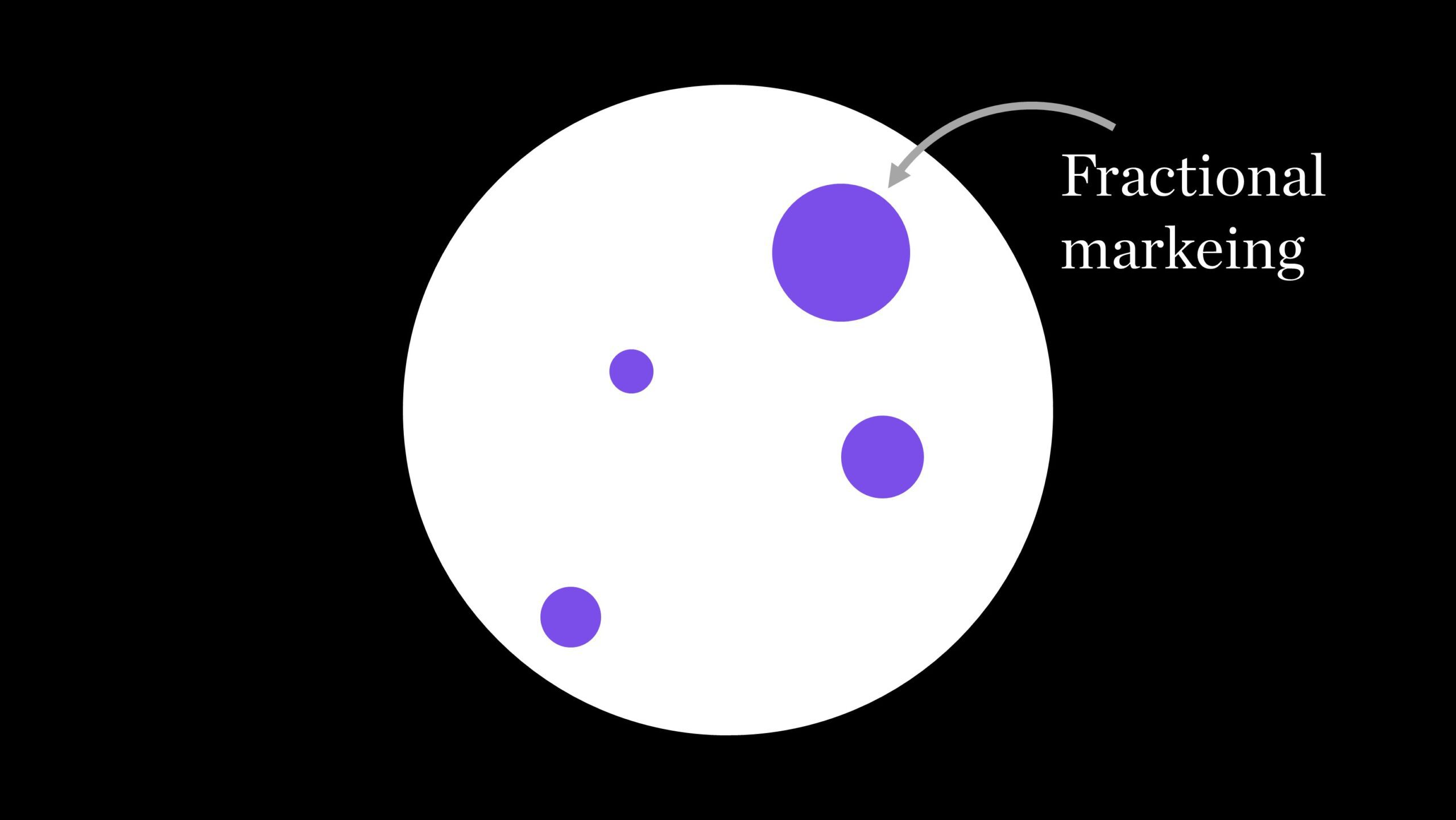Article last updated on January 26, 2023
Fractional marketing is a powerful yet cost-efficient alternative that allows businesses of all sizes to outsource certain aspects of their marketing activities without breaking the bank.
In this article, we’ll explore fractional marketing and its advantages, so you can decide if it’s right for you.
Fractional marketing is a new way of doing business that lets companies work with outside agencies or professionals to use their skills and knowledge part-time.
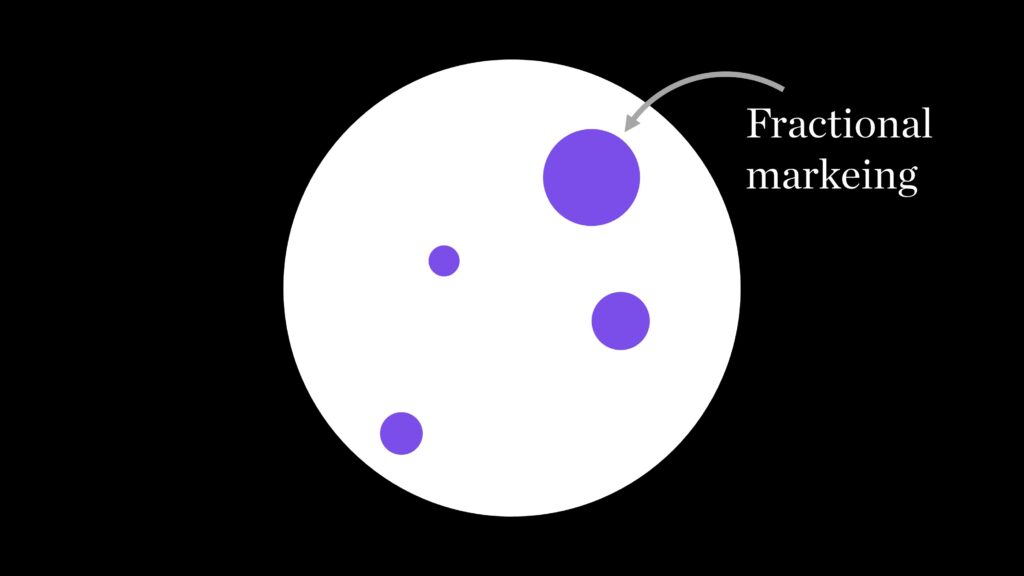
This means that companies do not need to hire expensive full-time personnel, but instead they are able to tap into short-term resources when needed. With fractional marketing, businesses have access to a number of experts who can give them valuable information about current market trends and how customers act.
Without fractional marketing, businesses would have to spend a lot of money on research and development to get this kind of information.
This idea is becoming more popular because it has many advantages over traditional marketing methods.
For instance, it provides flexibility and scalability while reducing the hiring costs associated with full-time employees.
Furthermore, fractional marketers bring fresh ideas, specialized tools, and tactics that can help organizations stay ahead of the competition while keeping up with ever changing customer demands.
So let’s take a closer look at how fractional marketing works and what it can do for your business!
What Is Fractional Marketing?
Fractional marketing is a fairly new idea that is quickly catching on in the business world.
It is a strategy for marketing and communication in which companies hire experienced professionals on a short-term basis instead of investing long-term resources in one full-time employee.
This means that businesses can get access to specialized skills without spending a lot of money or time on them. This is a great chance for small teams with limited funds.
But why should you consider fractional marketing over traditional approaches? Well, there are several benefits associated with this model.
- It gives businesses more control over how they manage their finances. Companies have the freedom to experiment by hiring different specialists depending on what project they’re working on and when they need them.
- Since these experts aren’t employed on a permanent basis, businesses don’t have to worry about high overhead costs like insurance premiums and paid time off.
- The ability to select specific talent based on individual projects also allows companies to stay agile and up-to-date with modern trends in their industry.
- Fractional marketers bring both up-to-date information and advanced knowledge from different sources. This gives them a better understanding of how customers act and, in the end, a higher return on investment (ROI) from their campaigns.
- Because all contracts are short-term, businesses can save money by not becoming overly reliant on any single person or team, giving them increased flexibility as well.
As we’ve seen so far, fractional marketing offers many advantages compared to traditional models; now let’s take a closer look at some of the specific benefits of such an approach.
Benefits of a fractional marketing approach
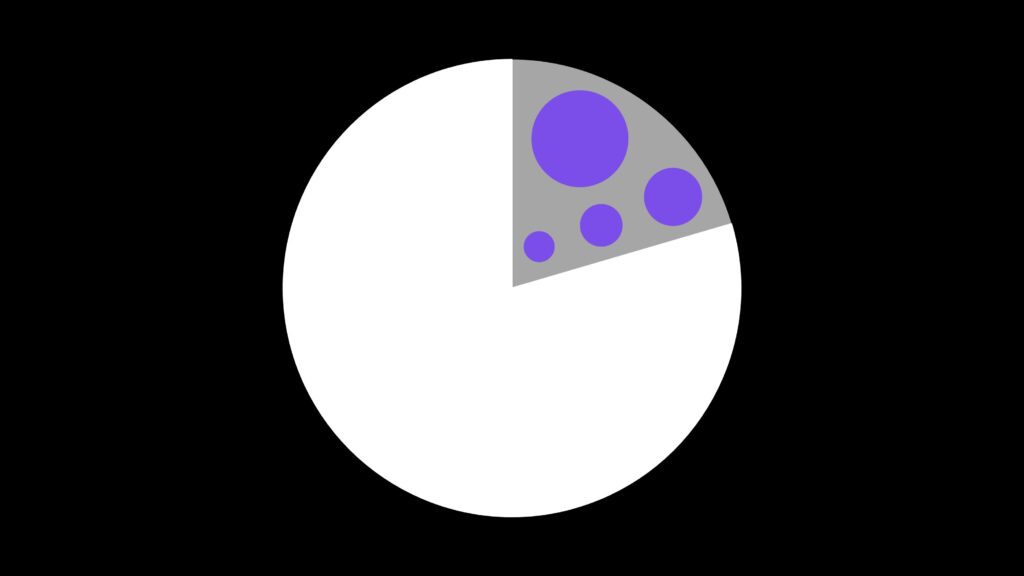
Fractional marketing gives businesses access to top-level expertise and resources while allowing them more flexibility in their spending. Plus, it allows you to reduce costs associated with full-time hires, like benefits or vacation time.
The biggest benefit of this type of marketing strategy is that it can be tailored specifically to your business needs.
You have the freedom to choose which parts of the process are outsourced and to bring on professionals for short periods of time who specialize in certain areas.
This means that you don’t need to commit long-term but can still get the best advice available from experts in their field.
Having a professional with a lot of experience on your team also has a lot of benefits. They know about industry trends, are up-to-date on the latest technologies and techniques, and know how to get the most out of a limited amount of time.
With a fractional approach, you’ll be able to harness these skills quickly and effectively, making sure each dollar spent delivers maximum value for your business.
This kind of flexible setup not only provides cost savings but also offers valuable insights into what works best for your company’s unique needs, giving you the competitive edge over other brands in your market space.
Now that we’ve looked at some of the key benefits of using a fractional marketing approach, let’s take a closer look at factors to consider when choosing a fractional marketing professional.
Factors to consider when choosing a fractional marketing professional
Choosing the right fractional marketer for your business is like finding a needle in a haystack. With so many options available, it can be difficult to determine which route to take and who best fits the company’s needs.
To help make this process smoother, there are certain factors you should consider when selecting a fractional marketing professional.
- Experience. An experienced marketer will bring years of knowledge and know-how that could prove invaluable when introducing new strategies or campaigns. They also have relationships with established vendors and partners that can save time and money on various projects. It’s important to evaluate their past work as well since this will give an indication of what kind of results they’re capable of producing.
- Budget. Budget is another major consideration when looking for a fractional marketer. You’ll want someone who understands how much you’re willing to allocate towards marketing efforts without sacrificing quality service or results. This includes being mindful of both fixed costs (e.g., salary) and variable costs (e.g., project expenses).
Make sure that any agreement you reach with the consultant specifies all fees associated with their services so that expectations are clear from the start.
- Fixed Costs: Salary and Benefits
- Variable Costs: Project Expenses and Software & Tools
Before making a hiring decision, it’s also important to think about how well the person fits with the team’s culture. After all, everyone needs to trust each other for long-term collaboration to work well.
Look into potential candidates’ background information, including education levels, previous employers, and interests or hobbies outside of work—anything that may reveal whether they would fit in well with existing staff members or not.
If possible, interview multiple applicants before making your final selection too!
In the end, choosing the right fractional marketer requires a careful evaluation of each candidate’s unique skillset and qualifications in relation to your organization’s goals and objectives before making a decision.
Choosing wisely now will pay off down the road, so don’t rush through this process!
Different Types of Fractional Marketers
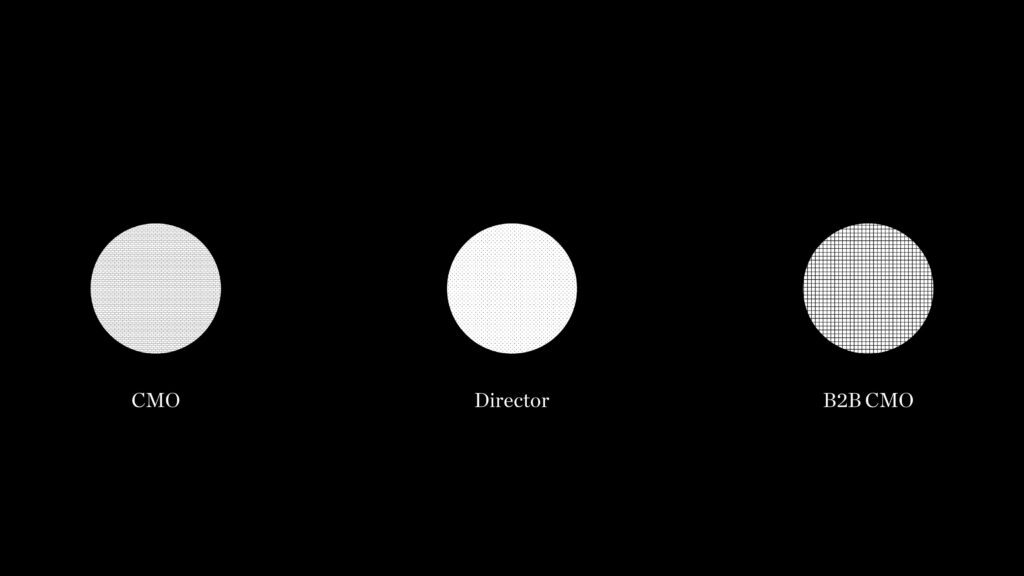
Fractional marketers come in different shapes and sizes, each offering unique skillsets that can help your business reach its goals faster than ever before.
From copywriters who specialize in crafting compelling stories to SEO experts who know how to optimize content for maximum visibility online, there’s something out there for everyone.
Don’t forget about experienced strategists either. They can tell you a lot about what works best when launching campaigns or making ads that reach your target audience.
With all these options at your disposal, you’ll have no trouble finding a professional who meets your needs perfectly.
But what exactly is a fractional CMO? That’s a whole other story, but suffice it to say that hiring this type of executive could be the key ingredient needed to take your business to another level…
What is a fractional CMO?
Figuratively speaking, fractional CMOs are the saviors of digital marketing. They swoop in and save companies that need to improve their online presence but lack an internal team or resources to do so.
Especially for small businesses, a fractional CMO can be very helpful. They bring the experience of big businesses without breaking the bank.
I have talked in more details about virtual CMO (fractional CMO) but in short, a fractional CMO is an experienced marketing executive who works with companies on a part-time basis. They provide strategic guidance and help to develop and execute marketing plans that are tailored to the company’s needs.
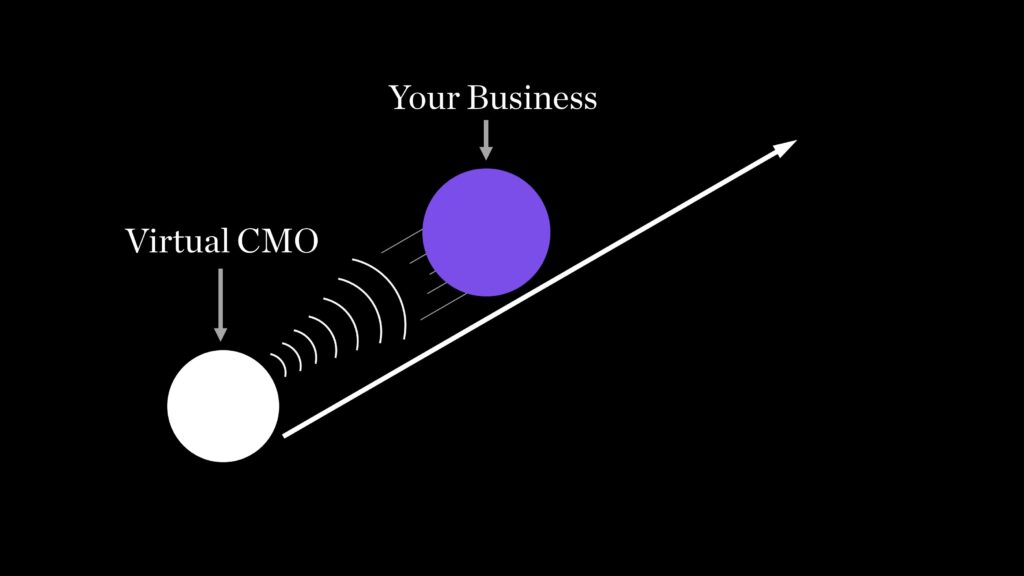
These professionals work remotely on behalf of multiple firms at once, often taking on specific projects as needed instead of running campaigns every day. This means they’re able to stay up-to-date with best practices while remaining cost effective for clients.
Fractional CMOs have a unique set of skills. Not only do they know a lot about traditional marketing methods like advertising and public relations, but they also know how new technologies like artificial intelligence and machine learning affect customer marketing strategies.
With this mix of skills, these experts can help any business make its processes more efficient and connect with customers better across all channels.
As such, it’s no surprise that many organizations have come to rely on them for successful outcomes.
The value of a fractional CMO is clear; now let’s explore what exactly these experienced professionals do when working with organizations.
What does a fractional CMO do?
A fractional CMO is well-versed in all aspects of digital marketing, from SEO and social media management to analytics and reporting. They can create targeted campaigns meant to drive conversions and create content that is optimized for search engine visibility.
Their skill set lets them make plans that are tailored to your company’s needs and quickly deliver results that can be measured.
Not only do they understand what works best for your particular industry, but they also possess the savvy needed to stay one step ahead of trends and competitors alike.
Essentially, with a fractional CMO working alongside you, you gain access to an experienced professional who can help set up your team for success no matter where you are in terms of growth or development.
No longer do companies have to rely solely on guesswork when it comes to setting up their marketing strategy; instead, they can tap into the wealth of knowledge offered by these experts. It’s truly an investment worth making if you’re serious about scaling up your business operations efficiently and effectively!
What is a fractional marketing director?
A fractional marketing director is an experienced expert who can help businesses in important ways without them having to hire someone full-time.
Companies often hire these kinds of people on a temporary or permanent basis, and their main job is to help companies come up with effective strategies that meet their specific needs.
The main reason to hire a fractional marketing director is to save money, since you only pay for the services you need and don’t have to commit to anything long-term.
Also, these experts know a lot about both traditional and digital marketing strategies. This means that your business will get advice that is up-to-date and fits its needs.
This makes them especially attractive options when resources are limited, but there’s still plenty to be done in terms of developing brand recognition, improving customer engagement, or creating impactful content.
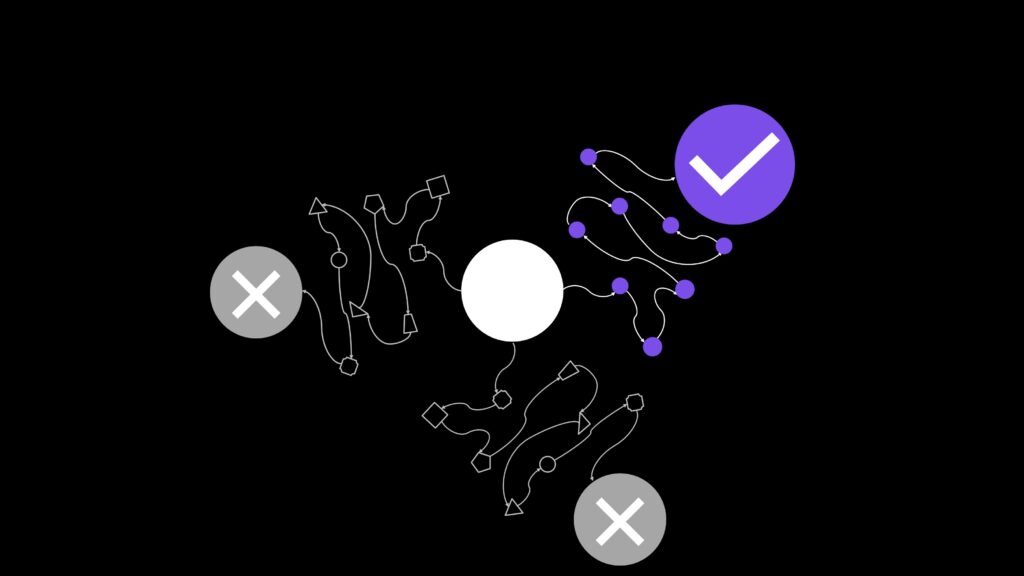
So while we’ve learned what exactly a fractional marketing director does, the next logical question then becomes, “What do they offer?” Let’s explore this further now.
What does a fractional marketing director do?
First, a fractional marketing director assists with the development of the company’s overall strategy.
This means making plans for budgeting, setting goals and objectives, coming up with campaigns, and putting those plans into action to reach those goals.
They can also be responsible for managing content creation, website design, and SEO optimization.
Next, they have to keep track of key metrics like sales conversions and website traffic to see how things are going.
Additionally, they must ensure that all campaigns align with the brand’s message and values while staying within budget constraints. Also, it is their job to constantly look at data and change strategies based on what they find so that the company gets the results it wants.
In addition to the above tasks, a fractional marketing director also has to do the following four things:
- Creating connections with influencers or media outlets;
- Establishing partnerships with vendors;
- Working closely with internal teams such as HR on recruitment initiatives;
- Assisting with product launches or the implementation of new ideas.
For these tasks, you need to be a strong leader and have great analytical skills. These are all important parts of any successful marketing campaign.
If your team’s structure doesn’t include these things, you may find it hard to get everyone to work at their best, which could mean missed opportunities and wasted resources.
And when it comes to leveraging digital tools like social media platforms and email newsletters, having someone knowledgeable who knows how best to use them will greatly increase your chances of success over time.
What is B2B fractional CMO?
A B2B fractional CMO is an experienced executive who helps your business with all of its marketing efforts by giving strategic advice and direction.
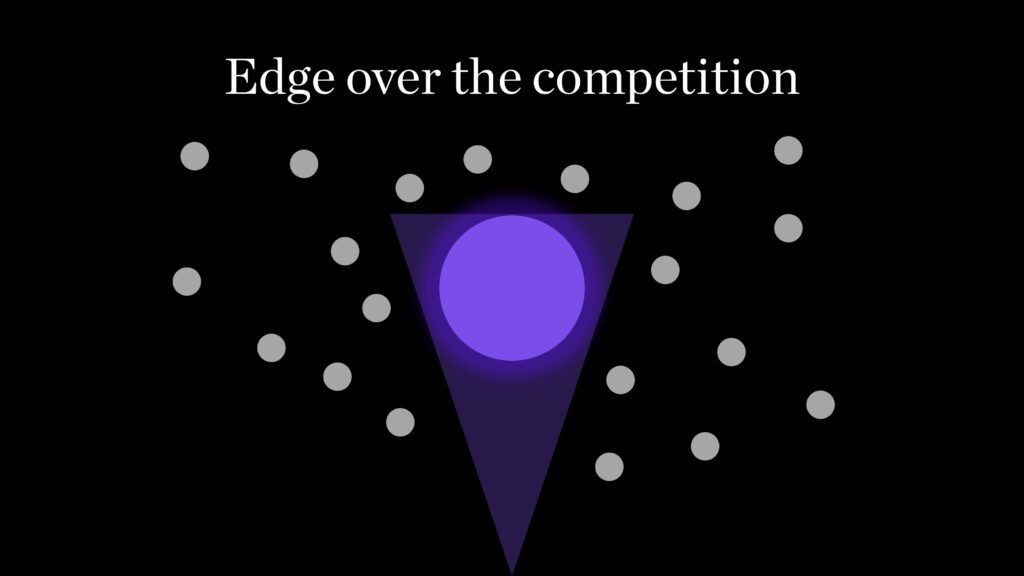
This could mean making plans for getting new customers, managing the creation of content, overseeing campaigns, or helping to position the brand.
Working with a fractional CMO as B2B company is helpful because they have years of experience in the field and can give you accurate information about current trends and best practices that you might not have otherwise.
Also, they give advice while still giving you the freedom to make changes quickly based on what customers say or how the market is doing, since there is no contract between the parties.
Overall, hiring a fractional CMO gives B2B companies access to valuable resources at reasonable prices, without the extra costs that come with hiring a full-time employee.
Now that you know all the major fractional marketing roles, it’s time to understand how the new wave of content marketing is changing the game.
Fractional Content Marketing as a New Trend
Fractional content marketing is a new trend in the digital world that has been gaining a lot of popularity over the past few years.
- This approach provides businesses with a number of advantages:
- Cost savings on hiring and training full-time staff;
- Increased flexibility when it comes to changing project priorities.
- Access to experienced professionals who can help bridge any skill gaps within existing teams.
- Reduced overhead costs associated with long-term contracts.
A fractional marketer typically works remotely from home and helps develop strategies, create content, manage campaigns, conduct keyword research, optimize websites, and analyze performance metrics, essentially doing whatever needs to be done for a successful online presence.
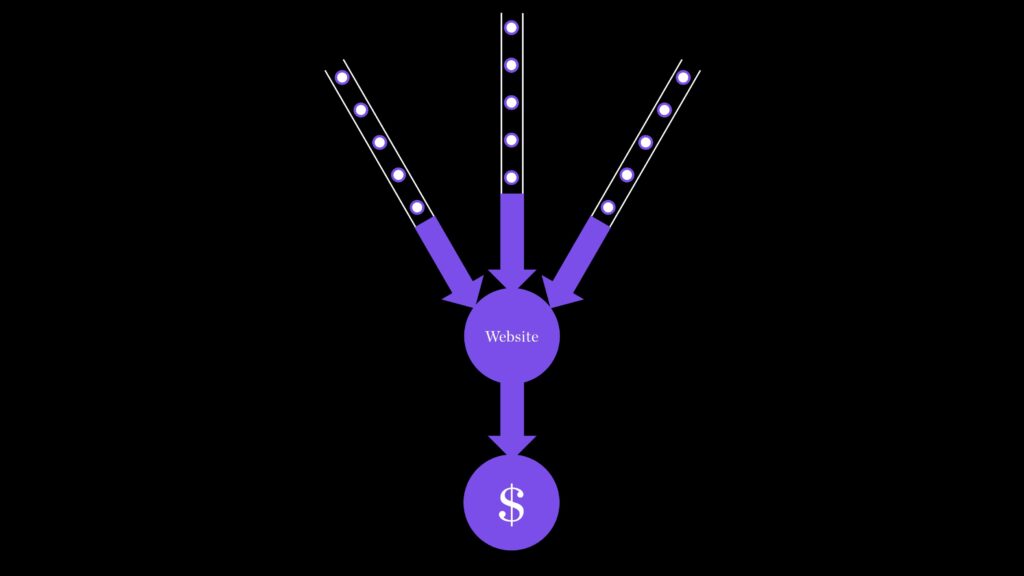
The advantage here is that businesses only pay for the services they require, as opposed to having a permanent employee whose salary remains fixed regardless of how much work is actually required each month.
This allows companies to better control budgets while still achieving desired outcomes without compromising quality.
By leveraging fractional content marketing, organizations can focus more energy on their core business activities instead of spending too much time trying to tackle complex tasks related to digital marketing themselves.
This strategy is a good way for businesses to boost their ROI without breaking the bank because it gives them access to top talent at reasonable prices.
What is a fractional content strategy?
Fractional content strategies allow companies to take advantage of expert knowledge, while still maintaining control over what they produce.
The key benefit of a fractional content strategy is that you don’t have to hire full-time staff members or outsource your entire project; instead, you get access to specialized expertise when needed.
This means that you’re able to focus on creating high-quality materials without having to worry about managing multiple people at once, freeing up more time for other tasks.
Plus, by working with experts in specific areas, you’ll be sure to create better content than if you were trying to tackle it all alone.
Fractional content strategies also offer greater flexibility compared to traditional approaches.
With fewer long-term commitments and lower overall costs, businesses can adjust their plans as needed without worrying about breaking the bank.
And since these strategies are tailored to each company’s individual needs, there’s no “one size fits all” solution, meaning that every business gets exactly what it needs from its investment.
By leveraging the power of fractional content strategies, businesses can ensure they make informed decisions quickly—without sacrificing quality or cutting corners due to a lack of funding or experience.
After reading all the above, maybe you are now asking yourself, “What does it cost to hire a fractional marketer?”
Understanding the Cost of Fractional Marketers
There are a number of things that go into figuring out how much you’ll need to set aside for your fractional marketer.
- The complexity of the project will be one major consideration; more complex projects may require additional hours from your expert or even an additional team member.
- You’ll also want to take into account whether you’re looking for ongoing support or just a single project.
- Finally, if you have any special requirements, such as specific software tools or design elements, that too can affect cost.
It pays off to do some research here: look around and compare prices with different providers so that you can make sure you’re getting good value for money.
In the end, it’s important to know how much fractional marketing costs if you want to use this type of service well with the resources your organization already has.
Once you’ve done your research and decided what works best for both parties, adding a fractional marketer to your existing team should be pretty easy.
How to Integrate a Fractional Marketer into Your Existing Team

The first step in integrating a fractional marketer into your team is to figure out what kind of expertise they’ll bring to the table.
Knowing their skillset and how it fits with yours will help make the process smoother and more efficient. Once that’s been established, you’ll need to come up with a plan for onboarding them and setting expectations for both parties.
This should include information about their role on the team, deadlines for tasks or projects, and anything else that needs to be said right away.
Having clear lines of communication from day one is essential when bringing on board a new resource like this. It’s important that everyone understands each other so that collaboration can flow freely while also ensuring that goals are met in a timely manner.
Taking the time needed during this stage will pay off greatly in terms of productivity later down the line—something that every business owner wants!
Moving forward without proper planning may lead to costly errors or delays that could have been easily avoided had the necessary steps been taken beforehand.
Now that you know how to work a fractional marketer into your existing team, let’s look at some of the problems that might come up when you use these services.
The Difficulties of Using Fractional Marketing Services
Working with outside partners and different team structures can bring their own challenges that you’ll need to overcome for your project to be a success.
First, there is the issue of communication. As you won’t have direct access to the individual or team providing the service, ensuring everyone is on the same page becomes more complicated than working with an in-house staff member.
It’s important to give clear instructions right away so that everyone knows what to expect from the start. It’s also important to set up regular check-ins throughout the process.
Additionally, if anything changes during the course of work, make sure it’s communicated quickly and clearly.
The other challenge that comes along with using outside teams is managing deliverables and deadlines. When working with someone who isn’t part of your organization, time management takes on extra importance.
Make sure all milestones are laid out ahead of time and agreed upon by both parties before any work begins. This will help keep timelines realistic and avoid potential bottlenecks further down the road.
Navigating these issues requires careful planning, but when done correctly, it can result in a productive relationship between you and your fractional marketing provider.
Tips to Get the Most Out of Your Fractional Marketing Professional
First off, it’s important for both parties to be clear about expectations from the beginning. You need to ensure that everyone involved is in agreement with regards to goals, budget, and timeline.
- Make sure you understand what kind of deliverables they will provide; this can include everything from research reports and customer surveys to messaging strategy documents and website audits.
- If you have an idea of the type of work that needs to be done so that expectations are clearly outlined; this will help avoid any potential conflicts down the line.
- Communication between both parties is key! Keep regular contact with your fractional marketer throughout the project lifecycle – whether via email or video call, as this will enable them to stay up-to-date on changes within the company and industry.
- Make sure that feedback is given quickly after tasks are done so that any problems can be dealt with quickly and effectively.
- Don’t forget to thank your professional at the end of each task, as recognition goes a long way!
By following these simple steps, you’ll be well on your way towards getting optimal value out of your fractional marketing partner.
A successful collaboration requires effort from all sides, but if done correctly, can yield great rewards for businesses looking for cost effective solutions without compromising on quality output.
Frequently Asked Questions
After reading the article, you may still have some questions about fractional marketing. Here are some of the most common ones:
How can I measure the success of fractional marketing?
The first step is to figure out which metrics are most important for judging how well your campaign is doing.
For example, if the goal is to increase website visits, then tracking traffic numbers should be high on your list.
Similarly, if you want to generate more leads through email campaigns, then measuring open rates and click-throughs will help you determine whether or not people are engaging with your content.
Additionally, consider setting benchmarks against which you can compare your performance, such as industry averages or the success of prior campaigns, so that you have something to aim for when assessing progress.
Once you’ve identified key metrics and set goals for measurement, there are several tools available that make tracking these figures easier than ever before.
Many marketing automation platforms offer comprehensive reporting features that allow marketers to track their campaigns from start to finish; plus, there are plenty of third-party analytics services out there too.
No matter which way you go, having accurate data at your disposal will help you evaluate the effects of any changes you make during a campaign and adjust them as needed to get the best return on investment (ROI).
It’s important that businesses take full advantage of modern technologies and methods like fractional marketing in order to stay competitive in today’s market – but knowing how successful those efforts are is just as crucial.
With careful monitoring and analysis, along with an appropriate benchmarking system in place, businesses can obtain real insight into the efficacy of their strategies and use that knowledge to continually refine their approach over time.
How do I know if fractional marketing is right for my business?
The first step is to identify your needs and goals—what do you want out of this strategy? Are there any particular objectives or milestones that need to be achieved?
You should also consider how much time and resources you have available, as well as what kind of expertise your team already has. All these factors will influence the success of fractional marketing at your organization.
Now would be a good time to research potential providers and get an understanding of their services. How experienced are they in delivering successful results? What kind of processes do they use when implementing strategies and tactics?
Your goal here is to find someone who understands your industry and can provide valuable insights into how to proceed with fractional marketing.
Once you’ve done some investigating, compare different options side-by-side and make sure they meet all your requirements before making a decision.
By taking the right steps ahead of time, you can make sure that fractional marketing works well for your business and has the most positive effect on growth as a whole.
How can I maximize the impact of fractional marketing?
Here are some key tips to consider when maximizing the impact of fractional marketing:
Focus on your objectives: Set measurable goals from the outset so you know what metrics you’re working towards and can track your progress over time.
1. Utilize expert guidance: Take advantage of the resources available through experts who specialize in this field; they will help ensure that all angles are covered during campaign development, implementation, and optimization stages.
2. Leverage technology: Investing in automation tools and other technologies can streamline processes while also allowing marketers to analyze performance and make informed decisions quickly.
3. Fractional marketing can help you reach your goals, whether you want to increase your market share or start selling a new line of products.
With its flexibility and versatility, it provides a powerful platform for unleashing creativity, enabling businesses to create unique customer experiences that leave lasting impressions.
Conclusion
In conclusion, fractional marketing is an effective way to increase brand awareness and reach a wider audience. For fractional marketing to work, you need to know the best ways to do it and set goals that can be measured so you can keep track of your progress.
Also, it’s helpful to work with an experienced fractional marketer who can help you along the way and offer support.
Just remember, Rome wasn’t built in a day—taking time to strategize and build up your presence will help you create lasting impressions that won’t be forgotten.
As long as I stay patient, consistent, and focused on my end goal, I should see positive results from my efforts over time.
At the end of the day, there’s no one-size-fits-all approach when it comes to fractional marketing; what works for me may not work for someone else.
However, by using the tips we discussed today and trusting our instincts along the way, I’m confident I’ll be able to find solutions that bring value to myself and my customers alike.


